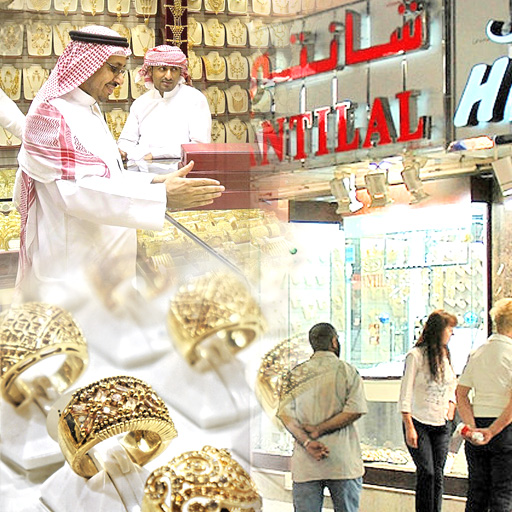The Evolution of the Middle East Gold Market: From Tradition to Innovation
The Middle East has a longstanding affinity for gold, deeply rooted in its culture, history, and economic landscape. Over the centuries, the region has played a pivotal role in the global gold trade, evolving from traditional markets and customs to embracing modern innovations and technologies. Let’s explore the fascinating journey of the Middle East gold market and its transformation over time:
Traditional Roots: Gold as a Symbol of Wealth and Prestige
Historical Significance
Gold has held immense cultural and religious significance in the Middle East for millennia. Ancient civilizations revered gold as a symbol of wealth, power, and divinity. From the pharaohs of Egypt to the kings of Mesopotamia, gold adorned the tombs, temples, and treasures of the region’s rulers and elites.
Arabian Gold Souks
The tradition of gold trading thrived in the bustling markets and souks of ancient Arabian cities. Merchants from across the Arabian Peninsula and beyond converged in vibrant marketplaces, exchanging gold jewelry, coins, and artifacts. The Arabian Gold Souks, including the renowned Gold Souk in Dubai, continue to be symbols of the region’s rich trading heritage.
Modernization and Globalization: The Rise of Regional Hubs
Oil Boom and Economic Expansion
The discovery of oil in the Middle East in the mid-20th century catalyzed rapid economic development and urbanization across the region. Oil wealth fueled investment in infrastructure, education, and healthcare, laying the foundation for modern economies and financial centers.
Dubai: The City of Gold
Dubai emerged as a leading hub for gold trading in the late 20th century, leveraging its strategic location, business-friendly policies, and world-class infrastructure. The Dubai Gold Souk in Deira became an iconic symbol of the city’s thriving gold market, attracting traders, tourists, and investors from around the world.
Diversification and Innovation
As Middle Eastern economies diversified beyond oil and gas, the gold market evolved to embrace innovation and technology. The establishment of free zones, such as the Dubai Multi Commodities Centre (DMCC), provided a regulated and transparent platform for gold trading, fostering trust and confidence among investors.
Global Integration and Market Dynamics
Global Connectivity
The Middle East gold market became increasingly interconnected with global markets, benefiting from advances in transportation, communication, and finance. Dubai’s strategic location facilitated trade routes linking Asia, Europe, and Africa, making it a vital transit point for gold shipments.
Financialization and Derivatives Trading
The introduction of gold futures and derivatives trading further expanded the Middle East gold market, offering investors hedging tools and price discovery mechanisms. Exchanges like the Dubai Gold and Commodities Exchange (DGCX) provided platforms for trading gold contracts, enhancing liquidity and market efficiency.
Islamic Finance and Sharia Compliance
The Middle East gold market embraced Islamic finance principles, offering Sharia-compliant gold investment products and solutions. This catering to the needs of Islamic investors widened the market base and promoted financial inclusion across the region.
Sustainability and Ethical Standards
Responsible Sourcing and Ethical Practices
In recent years, the Middle East gold market has prioritized responsible sourcing and ethical practices. Initiatives by industry stakeholders and regulatory bodies aim to ensure that gold traded in the region meets international standards for environmental sustainability and labor rights.
Innovation and Technology
The Middle East gold market continues to innovate with the adoption of blockchain technology, digital platforms, and fintech solutions. These advancements enhance transparency, traceability, and security in gold trading, reinforcing the region’s reputation as a global leader in the industry.
Conclusion
The Middle East gold market has undergone a remarkable evolution, from its traditional roots in ancient souks to its modern-day status as a global hub for gold trading. Through centuries of tradition, adaptation, and innovation, the region has maintained its position as a powerhouse in the global gold trade. As it continues to embrace technological advancements, ethical standards, and sustainable practices, the Middle East gold market is poised to shape the future of the industry and contribute to the prosperity of the region and beyond.







